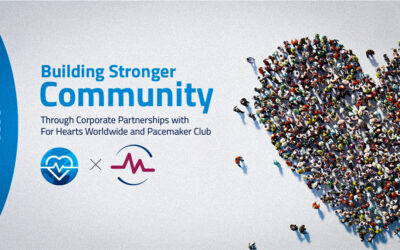The Micra Leadless Pacemaker: What You Need to Know
Pacemakers help to regulate dangerously abnormal heartbeats and arrhythmias by connecting to the heart’s electrical system via leads—thin, insulated wires that carry electrical pulses from the pacemaker’s pulse generator to electrodes inside the heart chamber. This...
Can a Pacemaker Affect Your Ability to Have Children?
For girls and young women with pacemakers, the dream of one day having children of their own was once only that—a dream. Over the last 25 years, medical breakthroughs and rapidly evolving pacemaker technology have made it possible for young recipients of pacemakers to...
How a Pacemaker Helps Manage Bradycardia and Tachy-Brady Syndrome — And Keeps You Active
How a Pacemaker Helps Manage Bradycardia and Tachy-Brady Syndrome — And Keeps You Active If you have been diagnosed with bradycardia or tachy-brady syndrome, you might feel uncertain about what comes next. Will you still be able to live a full, active life? The good...
Patient Success Story: Meet Carlos
Meet Carlos and his mother, a patient from Mexico who originally received his first pacemaker 21 years ago at age 5. Carlos was born...
Honduras Heart Center Highlight
ForHearts Worldwide is proud to highlight our Heart Center in Tegucigalpa, Honduras for their ongoing dedication to providing life-saving cardiac care. The cardiology team and staff at Hospital Escuela Universitario have played an important role in delivering...
Building Stronger Communities Through Corporate Partnerships with ForHearts Worldwide and the Pacemaker Club
It takes a community to achieve our mission of providing life-saving cardiovascular devices, follow-up care, education, and support for heart health. A key part of this community is our corporate partners and the support they provide. As a corporate...
What to Expect from a Lead Extraction Procedure
Pacemakers and implantable cardioverter defibrillators (or ICDs) are the heart rhythm “specialists” of the implantable cardiac device world. These “mini-computers” help to regulate dangerously abnormal heartbeats and arrhythmias like ventricular tachycardia and...
How to Keep Your Heart Healthy in Your 40s, 50s, 60s and Beyond
Depending on how old you are, you have heard the jokes or warnings that turning 40 means you are “over the hill.” That is because as you age, your body goes through numerous changes, many of them starting in your 40s. The most crucial “changes” in your health to...
A Night ForHearts 2025: What to Expect from This Year’s Event
It is time to dust off that fedora and break out your pearls! A Night ForHearts Gatsby Gala is roaring back to the ‘20s for an evening of sophistication and elegant opulence, all to support the lifesaving mission of ForHearts Worldwide. The 2025 edition of our...
The Best Exercise for Aging Bodies with a Pacemaker
Being physically active is important for your heart health, especially if you are living with a pacemaker or other implanted cardiac device. However, as you start to age, you may find that you are not able to be as active as you once were. It happens to everyone...










